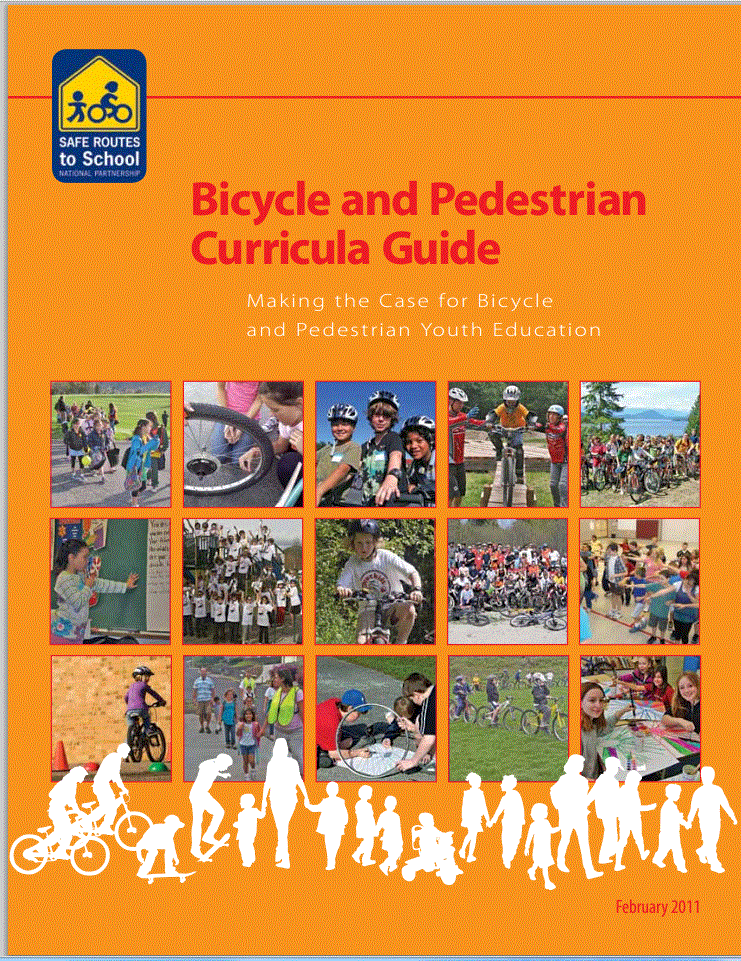 "We can never be satisfied as long as our children are stripped of their self-hood and robbed of their dignity."
"We can never be satisfied as long as our children are stripped of their self-hood and robbed of their dignity."
Resource Library
In a March 2012 research brief, Impact of State Laws on Walking and Bicycling to School, Active Living Research was the first to examine the impact of state laws on walking and bicycling to school among a national sample of elementary schools in the United States.
 After Congress and the President were unable to agree on a deal to continue funding for federal agencies and programs through the annual appropriations process, the federal government was shut down and non-essential employees were sent home. The shutdown is now in its second week, and there is no sign of progress towards a resolution.
After Congress and the President were unable to agree on a deal to continue funding for federal agencies and programs through the annual appropriations process, the federal government was shut down and non-essential employees were sent home. The shutdown is now in its second week, and there is no sign of progress towards a resolution.
This webinar from September 26, 2013 discusses how the Safe Routes Partnership can help support campaigns to increase shared use and street scale improvements in underserved communities.
 This October I was asked to write a guest post for the Green Trips program blog on how families and children can learn about their impact on the environment, their health, and their budgets by choosing to bike or walk for transportation instead of using a car.
This October I was asked to write a guest post for the Green Trips program blog on how families and children can learn about their impact on the environment, their health, and their budgets by choosing to bike or walk for transportation instead of using a car.
Part IV of the series "Steps to a Walkable Community: A Guide for Citizens, Planners, and Engineers."
 While it seems that the MAP-21 transportation law passed fairly recently, Congress only passed a two-year bill and MAP-21 expires in September 2014. Congress is starting to hold hearings on the transportation law and to consider how to fund the next bill.
While it seems that the MAP-21 transportation law passed fairly recently, Congress only passed a two-year bill and MAP-21 expires in September 2014. Congress is starting to hold hearings on the transportation law and to consider how to fund the next bill.
This brief created by the National Center for Safe Routes to School to address unsafe driving behaviors and outlines steps local safe routes to school programs can take to measure impacts of their activities.
 Over the past decades bicycle safety education has developed into its own field, ultimately being implemented in a variety of ways, depending primarily on the amount of time and resources available to convey important concepts. These choices are not easy and inevitably we, as educators, must make informed compromises.
Over the past decades bicycle safety education has developed into its own field, ultimately being implemented in a variety of ways, depending primarily on the amount of time and resources available to convey important concepts. These choices are not easy and inevitably we, as educators, must make informed compromises.
These briefings sheets were developed with funding support from the National Center for Safe Routes to School. The briefing sheets are intended for use by transportation engineers and planners to support their active participation in the development and implementation of Safe Routes to School programs and activities.
 Freedom. It means different things to different people. As a child, freedom to me meant a whole Saturday to ride my bike, named Winning Colors in honor of the female horse that won the1988 Kentucky Derby, across ditches, dirt roads, woods, marshes, and the occasional paved street.
Freedom. It means different things to different people. As a child, freedom to me meant a whole Saturday to ride my bike, named Winning Colors in honor of the female horse that won the1988 Kentucky Derby, across ditches, dirt roads, woods, marshes, and the occasional paved street.
By using SB 375 as an opportunity for taking control of future gowth and transportation decisions through regional planning, communities can stimulate construction and economic growth, reduce vehicle pollution, save money, and improve transportation choices.
 As we have discussed in previous posts, the U.S.
As we have discussed in previous posts, the U.S.
On May 8, 2012, the Institute of Medicine (IOM) released a consensus report funded by the Robert Wood Johnson Foundation Accelerating Progress in Obesity Prevention: Solving the Weight of the Nation. Two-thirds of adults and one-third of children are overweight or obese.
This fact sheet provides an overview for advocates and community members on the benefits of complete streets policies. NPLAN has models and findings that you can tailor and use in your community.
 As students all across the state of Tennessee head back to school, children in Knoxville have police officers stepping up efforts to make sure safety is first. In order to reduce the number of pedestrian crashes, the Knoxville Police Department (KPD) and the Knox County Safe Routes to School Partnership will implement a program to educate drivers about yielding to pedestrians in crosswal
As students all across the state of Tennessee head back to school, children in Knoxville have police officers stepping up efforts to make sure safety is first. In order to reduce the number of pedestrian crashes, the Knoxville Police Department (KPD) and the Knox County Safe Routes to School Partnership will implement a program to educate drivers about yielding to pedestrians in crosswal
This article highlights the impact the bicycle industry and bicycle tourism have on state and local economies; describes the need for bicycle facilities, discusses the cost-effectiveness of investments, points out the benefits of bike facilities for business districts and neighborhoods, and identifies the cost savings associated with mode shift.
 The Greek philosopher Thales and the Roman poet Juvenal both wrote about the way in which physical health and mental health are intertwined, seeking the ideal of a “sound mind in a sound body.”
The Greek philosopher Thales and the Roman poet Juvenal both wrote about the way in which physical health and mental health are intertwined, seeking the ideal of a “sound mind in a sound body.”
The purpose of this guide is to help bicycle advocates review transportation projects to ensure that bicycle facilities are included inthe design. The construction, retrofit or expansion of a public road involves many steps by local, regional and state governmental agencies.


